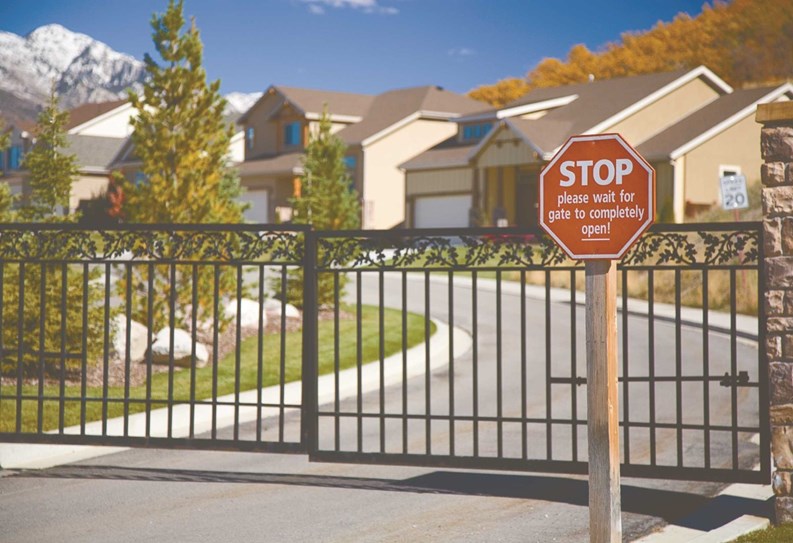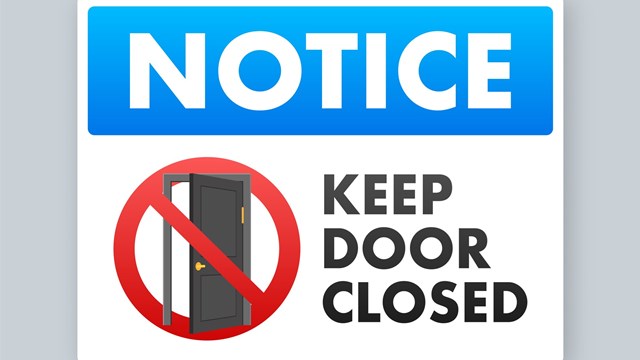While the vast majority of cities across the country report declining crime statistics, the fact remains that crime still does happen sometimes—even in the quietest, most affluent communities. Prevention is the best form of crime reduction, and part of the prevention process is knowing how crimes occur in the first place. Knowing the circumstances and outcome of a fellow association's experience can help a board/management team be on the lookout for similar situations in their own community.
In many ways, condominiums are inherently less vulnerable to crime than individual houses are. Part of the reason people choose to live in a condo complex is because of the community aspects, and it’s those aspects that help keep every unit in a community safer.
Not that HOAs are immune to crime. Violence can go down anywhere; drug abuse is not peculiar to any single demographic; thieves can live among us. With respect to crime, anything is possible.
Seen it All
If anything is possible, Scott Vogel has seen just about everything. He’s the director of operations and communications for Linden-based Emergi-Clean, a company you call to clean up the mess when the last scene in Reservoir Dogs happens in your building. Which, sometimes, it does. “We get it all,” he says. “Stabbings, shootings, suicides.”
In one gory incident a few years ago, Vogel recalls, a dispute between residents turned particularly ugly. “Both of them had knives and were stabbing each other,” he says. “Thirty-six stab wounds later, one guy died. The other person had seven stab wounds.” Talk about making a point.
There’s one thing to keep in mind, should the unthinkable happen at your condo. If there is a violent crime in the process of happening, do not step in to take matters into your own hands.
“Call the police immediately,” says Thomas Chilenski, president of Cedarcrest Property Management in Fairfield. “Have them handle it. That’s what you pay the taxes for. Don’t get involved. It isn’t your job; it isn’t the property manager’s job.”
In the movies, of course, these situations are often dispatched with the aid of a civilian—Bruce Willis, usually. He takes care of business, and any injuries he may have sustained by stray gunshots or knife attacks are quickly healed by an ex-wife’s kiss. This is not how things tend to play out in real life. Those who get involved wind up being victims themselves.
“Don’t try to stop it, if there’s any danger involved,” Chilenski says. “Think of your personal safety first. That’s what’s most important.”
Crime and Punishment
Fortunately, the lion’s share of crimes that occur at HOAs are more benign.
“Vandalism happens all the time,” Chilenski says, “usually in the laundry rooms. It’s hard to catch the person without eyewitnesses. If somebody saw him, called the police, they might catch him. But it’s really difficult.” As crime goes, he says, this is the biggest problem.
From time to time, robberies also happen. Word gets out, as word will, about a security breach in some or other HOA, and then it’s go time.
“One of the targets is units that back to woods and have sliding glass doors,” says Denise Lindsey, vice president of Access Property Management in Flemington. “We had a rash of burglaries in a prestigious community in Basking Ridge.”
Burglaries tend to happen in sprees. In one community, Chilenski recalls, word got out that a group of residents, distrustful of banks, were storing cash, jewelry, and gold in the units. Thieves had a field day; eight homes were robbed in two weeks. (The perpetrators were eventually apprehended, although the details of the arrests remain murky).
Cars are another common target. Thieves smash windows and make off with iPods, GPS systems, E-Z Passes, cell phones. “They’re in lots,” Lindsey explains, “not driveways or garages.”
And then there are the unusual cases. Chilenski remembers a situation where one resident was sneaking into the community room late at night, after closing time, and availing himself of the TV and the couch (he sat on the latter in the nude to watch the former; and it's not hard to guess what sort of programming he was interested in). He had no idea that his little forays were being filmed. “We had the couch replaced,” Chilenski says, “at his expense.”
Safer Steps
There will always be crime, just as there will always be poverty, homelessness, malnutrition, and neighbors who are annoying. We can’t completely stamp it out without ending the human experiment. But there are steps you can take to make your HOA safer.
You know how grocery stores always keep those fluorescent lights on, even when the store is closed? They don’t do that just to waste energy; they do it to deter break-ins. Darkness is a thief’s best friend. “Encourage HOAs to install sensor lights on patios,” Lindsey says. “If it’s dark and someone comes, the light goes on. That’s a warning right there.”
Break-ins occur when burglars discover that a home is worth breaking into. But the home also has to be the sort of place that a burglar can break into. It’s up to the individual homeowners to keep their unit safe.
“Make sure your sliding glass doors are secure with a piece of wood or a metal,” Lindsey says. Lock your doors, especially at night. Keep a light on in the bathroom. If you’re away a lot, keep lights on a timer, to create the illusion that someone is home (leaving a TV on with the sound on has the same effect).
And you have to be able to see the outside world to protect yourself from it. “Landscapers should trim the bushes so they don’t cover the windows. People think bushes over the windows give more privacy; not so. You need to be able to see out the window” to deter crime, Lindsey explains.
“If you have cars, make sure your stuff is not visible. Lock it in the glove compartment or the trunk.” Even the stand for the GPS system, Lindsey says, is an invitation to a thief to smash your window. “If you have a driveway or a garage, use them. Most people use their garage for storage, and not to secure their vehicle.”
Don’t be lax—just because no one has stolen your bicycle from your backyard doesn’t mean that no one ever will.
“It’s really about awareness,” says Lindsey. “If you have a streetlight out, you have to report it. Roving patrols are a good idea. Neighborhood watch is a good idea, too, as long as you don’t try to be a hero.”
Chilenski agrees. “Get the word out with newsletters,” he says. If a unit is broken into, for example, the rest of the owners should be on alert. “Group targets are common. Be proactive,” he urges. “Have special meetings. Send a police car out. Put up fliers. Set lights on timers. Use CFL bulbs.”
Most important, take advantage of the communal organization of your HOA. “If you don’t live in a gated community, everybody who lives there has to keep an eye out for each other, like a true community should,” Chilenski says. The modern notion of people coming and going and keeping to themselves, he suggests, actually abets criminal behavior by discouraging the sense of community.
To that end, the board should do what it can to encourage socializing. Have holiday parties. Sponsor mixers. Show movies in the community room on Friday nights. Whatever you can think of to get residents to get to know each other better, to establish a sense of neighborliness and community, works to deter crime.
Throwing a community-wide BBQ might not seem a logical way to prevent crime but the intangibles these sort of residential gatherings provide do help with awareness. “The more you do to create a sense of community, the better,” he says.
Greg Olear is a freelance writer and a frequent contributor to The New Jersey Cooperator.







Comments
Leave a Comment